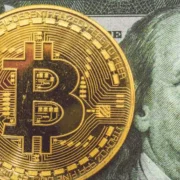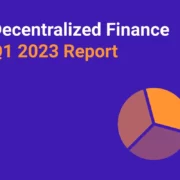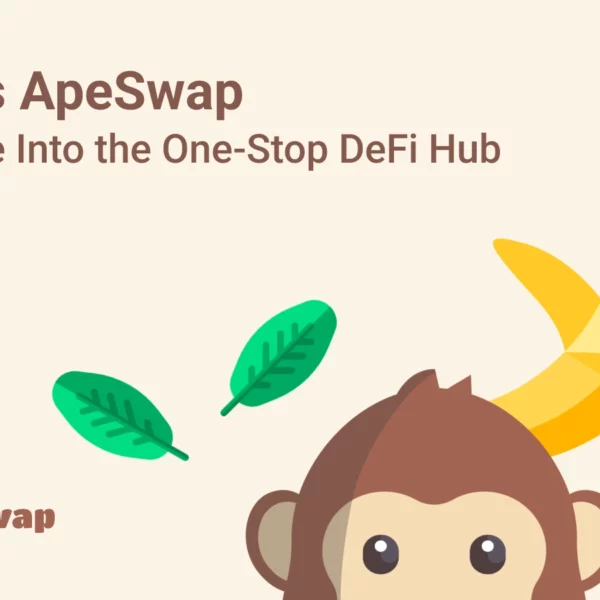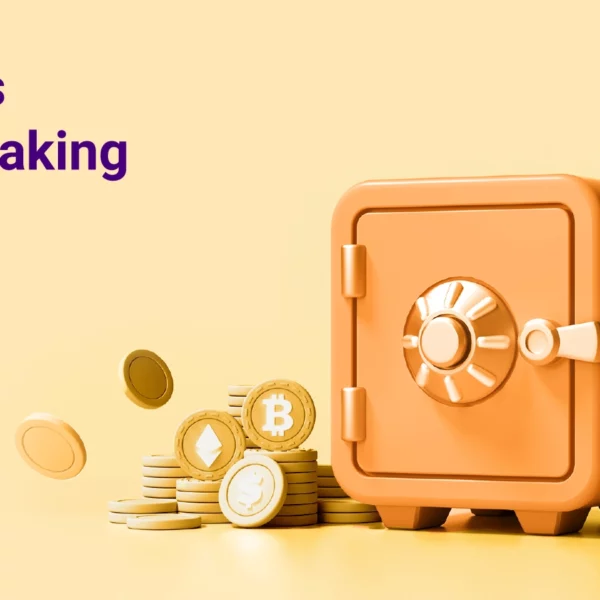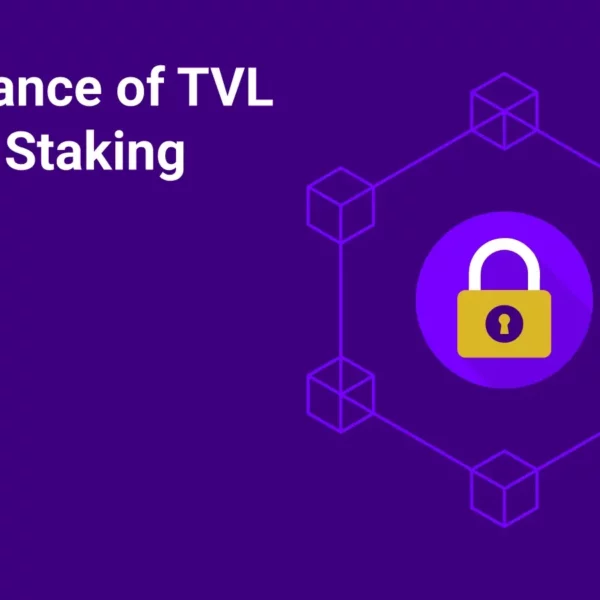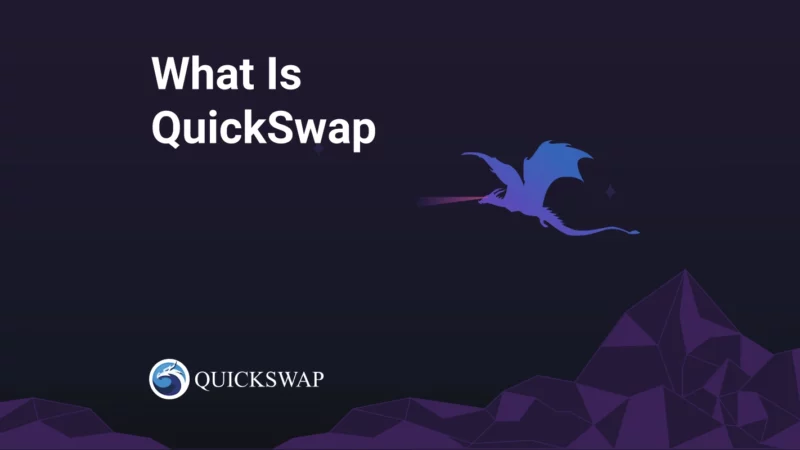
QuickSwap is a Layer 2 decentralized exchange and automated market maker (AMM). It was created on the Polygon blockchain and is essentially a fork of Uniswap.
QuickSwap uses a liquidity pool model similar to Uniswap in that users offer liquidity and earn transaction fees when they swap tokens from these liquidity pools. However, its advantages are that QuickSwap is built on the Polygon network, enabling it to facilitate token swaps faster and at a lower fee.
QuickSwap connects the Ethereum and Polygon blockchains, enabling users to swap and trade ERC-20 tokens on QuickSwap.
This article will delve deep into the QuickSwap protocol, provide an extensive breakdown of its technology and features, and proceed with a quick tutorial on trading tokens on QuickSwap.
Let’s get started!
What Is Quickswap?
Quickswap is a Layer 2 decentralized exchange, and automated market maker (AMM) launched in 2020 by Nick Mudge and Sameep Singhania.
QuickSwap protocol offers a bridge between the Ethereum blockchain and Polygon, enabling users to swap and trade ERC-20 tokens on QuickSwap without order books and without having to pay Ethereum’s high gas fees. With a liquidity pool, users can bridge ERC-20 tokens from Ethereum to Polygon and trade any pair via QuickSwap. By supplying a token pair, anyone can launch a new liquidity pool and begin collecting transaction fees from other participants.
QuickSwapaims to solve such user experience problems as Ethereum’s high transaction fees and transaction times by leveraging the low fees and rapid confirmation times of Polygon’s Layer 2 technology. QuickSwap users can perform faster and cheaper transactions on the Polygon network and enjoy the secure, audited code of Uniswap.
QuickSwap is powered by the QuickSwap token (QUICK) and the Dragon’s Quick token (dQUICK), QuickSwap’s interest-bearing token.
The QuickSwap team forked the code behind Uniswap without changing the underlying code to run on Polygon and named the resulting project QuickSwap. The team also developed additional features such as Dragon Lair, where users can stake their QUICK tokens to earn protocol fees, and Limit Order support and Dragon Syrup, where stakers of dQUICK can earn additional yields from projects that are traded on QuickSwap.
What Is Polygon?
QuickSwap has become one of the most popular automated market makers (AMMs) by building on top of the Polygon Layer 2 scaling solution, which benefits from near-zero gas fees and up to 65,000 transactions per second. By building on top of Polygon, QuickSwap aims to facilitate fast transactions with virtually no transaction costs while redesigning how people interact with Decentralized Exchanges and DeFi by developing intuitive user interfaces.
Polygon is a developer-friendly hybrid protocol rebranded from the well-known Matic Network in Q1 of 2021. It’s one of many Layer 2 scaling solutions helping to scale the world’s most programmable blockchain. Polygon combines Proof-of-Stake (PoS) and Plasma to enable developers to quickly develop and deploy Ethereum-compatible, highly scalable decentralized applications (DApps).
On the Ethereum Mainnet, Polygon employs “PoS checkpoints” to complete transactions. It uses several smart contracts for functions like staking, message relaying, checkpointing, finality, and dispute resolution.
Polygon enables developers to create customizable blockchain networks. Ethereum’s strength and interoperability are combined with these networks’ flexibility, sovereignty, and scalability. This makes the testing and releasing secure decentralized applications (DApps) to the market exceedingly simple. Additionally, all tools made for Ethereum developers are compatible with DApps developed on Polygon. For example, you can change the Remote Procedure Call (RPC) from Ethereum to the Polygon/Matic Network at the top of the extension to utilize Polygon with MetaMask.
Polygon powers QuickSwap transactions, i.e., asset exchanges on QuickSwap exchange take less than two seconds and cost a fraction of what they do directly on Ethereum.
The Layer 2 solution offered by Polygon is in great demand and essential for developing the crypto sector.
What Is QUICK Token?
The QuickSwap platform is powered by its native QUICK token, an ERC-20 token. The QUICK token was introduced in February 2021 and had a nearly 90% rise on its initial trading day. Check the current QUICK token price, total supply, maximum supply, live market cap, current circulating supply, 24-hour trading volume, etc., and get real-time updates on QUICK to USD price on CoinStats, one of the best crypto platforms around.
The QUICK token distribution was based on a community-focused governance structure. The QUICK coin received no seed money from private or public sources. There were no pre-sales, private sales, or seed rounds. 90% of all QUICK tokens were or will be distributed to the QuickSwap community via liquidity mining rewards, slated to be paid out until 2025.
Liquidity providersearn a 0.25% fee on all trades proportional to their pool share. Liquidity providers for select incentivized pools receive LP tokens, which they can then stake in LP Mining or Dual Mining to earn more rewards in addition to a portion of the pool’s trading fees. The LP tokens received for providing liquidity for incentivized pools can be used for yield farming.
QUICK token holders can vote for various aspects of the protocol changes and cast votes on multiple topics, including changes to the reward structure and whether pools are eligible for quick mining.
The QUICK cryptocurrency is designed to enable QuickSwap to achieve complete decentralization.
QUICK’s use cases include:
- Providing Liquidity
- Yield farming to earn dQUICK tokens as rewards
- Voting power for QUICK token holders
- Staking to earn more QUICK tokens (Dragon’s Lair for Old QUICK, Dragon’s Syrup Pools for New QUICK)
- Participating in Initial DEX offerings (IDOs)
- Speculating and trading.
How Does Quickswap Work?
The QuickSwap protocol uses an automated market maker model (AMM) called Constant Product Market Maker to create liquidity pools of tokens that users can access to swap. Users don’t trade as makers or takers but interact with a smart contract, a unique computer program built on the Ethereum blockchain.
Smart contracts regulate and manage any token exchanges on QuickSwap automatically. As a result, swaps are accessible to all QuickSwap users via a browser plugin without any requirement to register or provide ID details.
A liquidity pool is another crucial component of QuickSwap. Liquidity pools are funded by liquidity providers, allowing any project participant to contribute the equivalent of two tokens to the pool. The small fee traders pay is divided among liquidity providers based on the proportion of their shares in the liquidity pool.
Quickswap Liquidity Pool
Liquidity providers create a market by depositing the equal value of two tokens. Afterward, a smart contract automatically locks the token pairs – a pair of ERC-20 tokens or ETH and an ERC-20 token.
Although this is not required, pools typically consist of stackable tokens like DAI, USDC, or USDT. In exchange, liquidity providers receive liquidity tokens (LP), representing the liquidity pool’s share. Providers who contribute more typically receive more significant benefits.
Tip: You can click on your selected pool to view data such as the total prizes awarded daily, the annual percentage yield (APY), etc. You can also select Dual mining pools, which double your earnings when you deposit your liquidity provider tokens (LP).
Dragon’s Lair
QuickSwap’s Dragon’s Lair is a popular single-staking product that allows users to stake their QUICK tokens to supply liquidity on QuickSwap to earn rewards without the risk of impermanent loss. By staking QUICK tokens in the Dragon’s Lair, users can earn dQUICK tokens as rewards and a share of 0.04% of all trading fees on QuickSwap indefinitely. Plus, users can earn passive income by staking QUICK tokens in Dragon’s Syrup Pools, which offer a finite number of rewards in participating tokens that expire once the limit is depleted.
Token Swaps
QuickSwap enables users to quickly exchange ERC-20 tokens and any Polygon-related tokens, as well as wrapped tokens, for only a 0.3% transaction fee. The fees collected from these transactions are paid out to liquidity providers. Unlike other platforms, QuickSwap doesn’t require KYC, so users only need MATIC in their wallets to perform the swap. With its simple and user-friendly layout, QuickSwap offers a permissionless way to exchange tokens.
How to Trade on Quickswap?
You can access QuickSwap exchange (quickswap.exchange) on both mobile devices and desktop web browsers for swapping tokens. With the help of one of the liquidity pools, you may effortlessly trade your coins for a fee.
1. Navigate to quickswap.exchange.
2. Connect your wallet. You should use a mobile wallet app or a desktop browser extension wallet supported by the Polygon Network, such as the Trust Wallet or MetaMask
3. Click Swap in the navigation bar once your wallet is connected.
4. Select the token pair you wish to swap. The default token is usually MATIC, but you can swap MATIC for other tokens.
Tip: QuickSwap provides price impact warnings at the bottom of your trading dialog after you have selected your trading pair and the amount you are trading. This helpful header tells you the difference between the market price and the estimated transaction price.
5. Click Swap to initiate the swap.
6. Preview and confirm the transaction on your wallet.
Uniswap vs. QuickSwap
QuickSwap has become a popular alternative to Uniswap for many customers due to its fast transaction speeds, low costs, and compatibility with Ethereum. The Polygon network’s low fees and short transaction times are a major draw for users. Using QuickSwap, users can enjoy the significant security benefits of Uniswap’s audited code while conducting transactions on the Polygon network quickly and inexpensively. Users can also bridge between Polygon and Ethereum to transfer ERC-20 tokens on QuickSwap without paying Ethereum’s high gas fees.
Final Words
QuickSwap has gained popularity among users looking for fast, inexpensive, and secure transactions. With its compatibility with the Ethereum network and the low fees and fast transactions offered by the Polygon network, QuickSwap offers a compelling alternative to any centralized exchange. Users can earn rewards by staking QUICK tokens in the Dragon’s Lair or participating in Dragon’s Syrup Pools. Plus, QuickSwap’s permissionless token swaps allow users to exchange ERC-20 tokens without needing KYC verification. Overall, QuickSwap is a promising platform for users seeking a reliable and efficient decentralized exchange.
-
Rafayel Begoyan is a marketing specialist, AI enthusiast, and crypto enthusiast with a passion for leveraging cutting-edge technology to drive business growth.
He has been fascinated by the potential of blockchain and cryptocurrencies to revolutionize traditional finance and is continuously exploring new ways to incorporate them into marketing initiatives.
As an avid learner and advocate for AI and crypto, Rafayel stays up-to-date on the latest trends and innovations in both fields.
